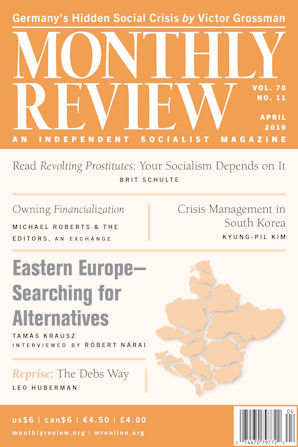Also in this issue
- Searching for Alternatives in Eastern Europe: Tamás Krausz Interviewed by Róbert Nárai
- Crisis Management in South Korea and the Hegemonic Strategy of the Chaebols
- The Debs Way
- The Critique of Financialization: A Reply to Michael Roberts
- Germany's Hidden Social Crisis
- Read Revolting Prostitutes: Your Socialism Depends on It

